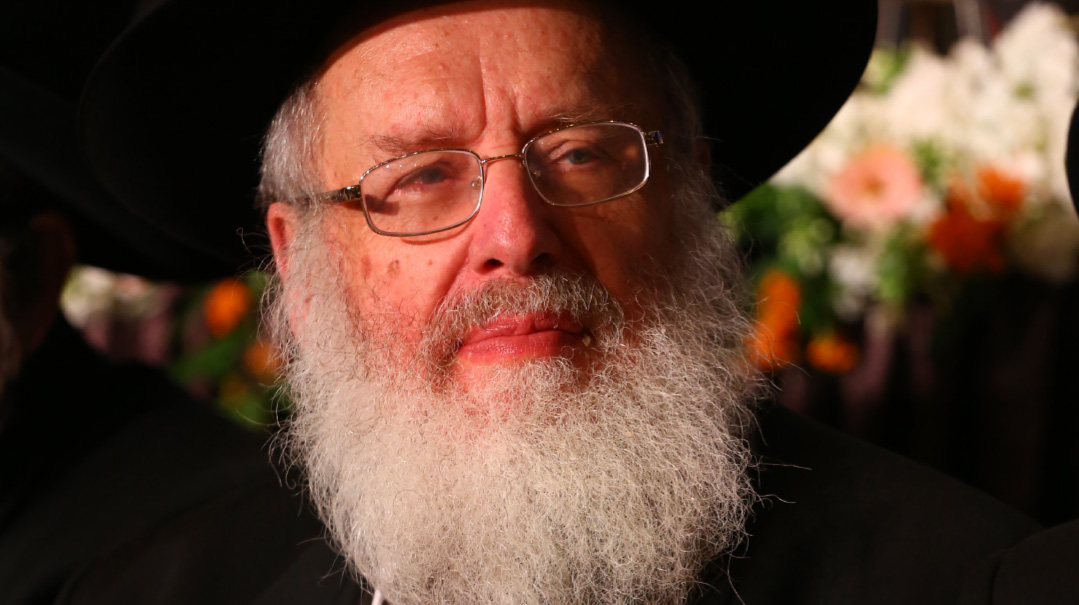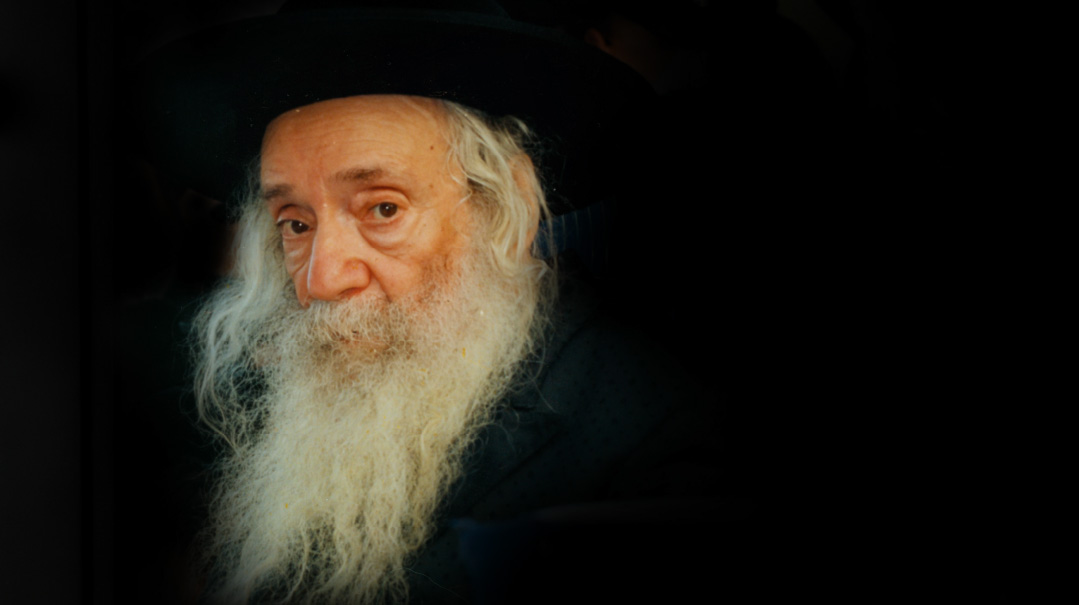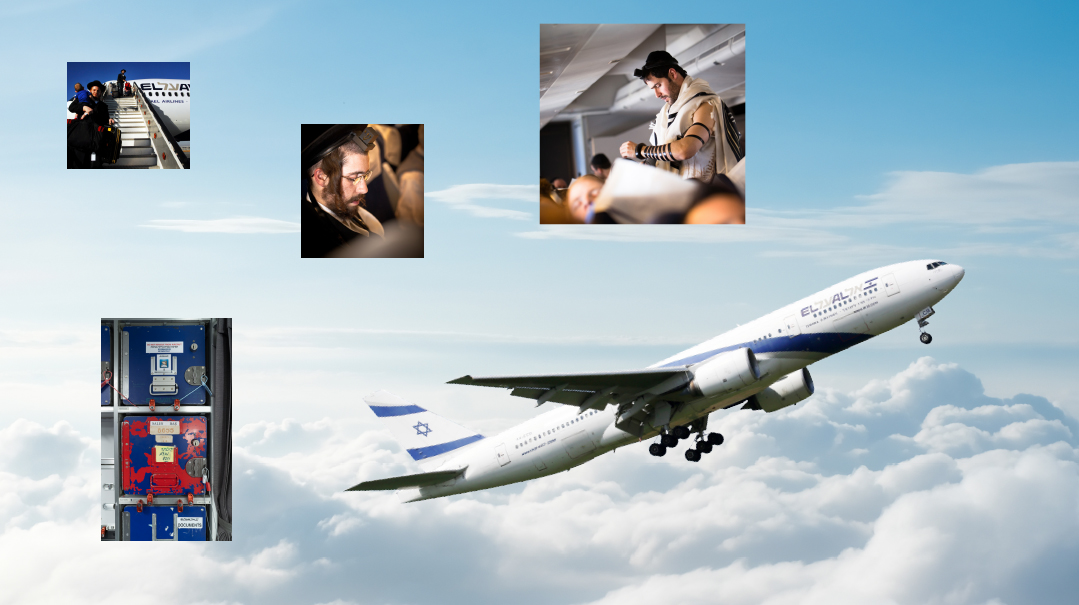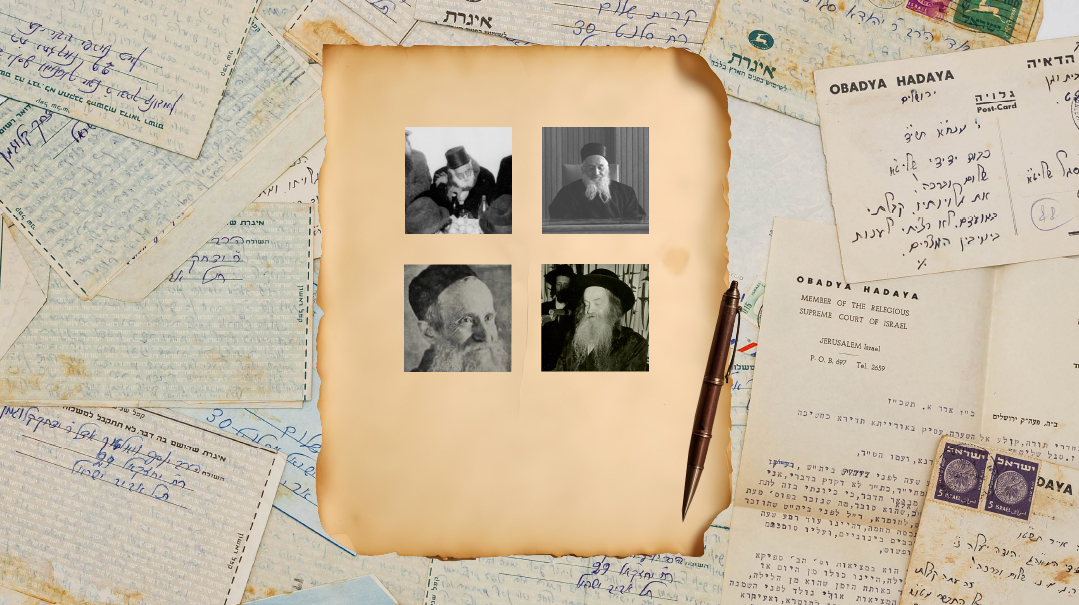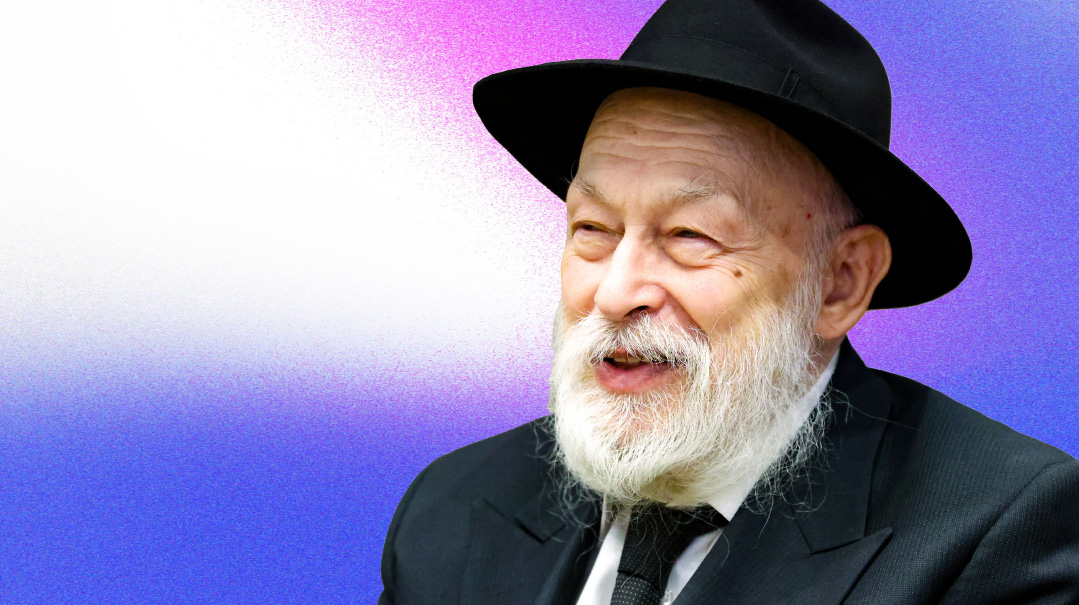Safer Behind Bars

A Russian arms dealer stays quiet in a US prison
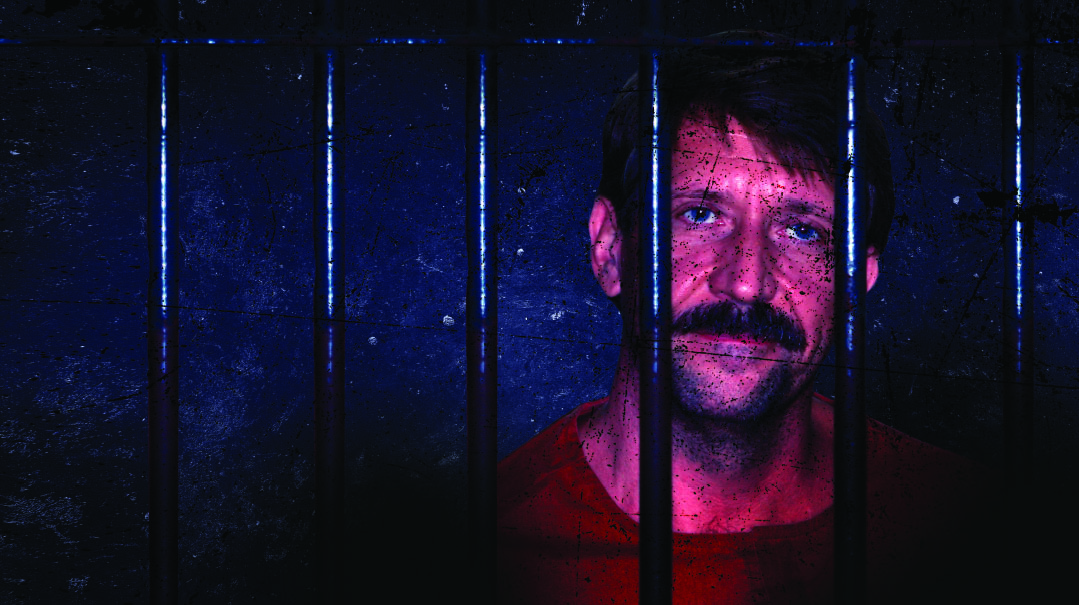
Photos: AP Images
President Joe Biden and his Russian counterpart Vladimir Putin had a lot to talk about in their three-hour meeting last month in Switzerland. They chatted about the capitalistic rights of Russian hackers to demand ransoms from American infrastructure companies; they spoke about Russia’s security needs and why that requires the country to invade half of Ukraine; they discussed the future of Alexei Navalny, who somehow found himself in a Siberian prison for the next two lifetimes. Even polar bears somehow made it into the conversation, when Putin raised the issue of control over quarries concealed beneath the arctic ice sheet. It was interesting.
But Putin saved his best shot for the last.
“What do you think,” he casually asked the American president toward the end of the summit, “about doing a prisoner exchange, you and I?”
“Do you have someone specific in mind?” Biden asked, equally casually.
Putin shrugged and glanced at a note that one of his aides had stuck into his hand before he entered the room.
“I have two names here,” he said in his most indifferent KGB-honed tone. “One is Konstantin Yaroshenko [a Russian pilot found guilty of conspiracy to bring drugs into the United States], and… another one. Someone named Viktor Bout… not particularly important but my aides tell me it’s better that he should be in Moscow and not in a federal prison in Marion.”
“That may be true,” Biden agreed. “But… my aides claim that it’s actually better for Bout to stay right where he is, unless you have a convincing reason for us to transfer him to you.”
Viktor Bout, a Russian arms dealer dubbed “The Merchant of Death” for his vast arms trafficking activities, allegedly used his multiple air transport companies to smuggle weapons from Eastern Europe to Africa and the Middle East during the 1990s and early 2000s, after the collapse of Communism. A former Soviet air force officer who saw the potential for selling weapons internationally as the Cold War came to an end, Bout allegedly had extensive dealings with the Taliban in Afghanistan and armed several other terrorist groups. Bout, who allegedly supplied weapons to anyone who would pay him, was arrested in 2008 in Thailand on terrorism charges by the Royal Thai Police in cooperation with American authorities, accused of intending to smuggle arms to revolutionaries in Colombia for use against US forces there. He was extradited to the US, convicted of conspiracy to kill US citizens and officials and providing aid to a terrorist organization, and was sentenced to 25 years’ imprisonment. Since June 2012, Bout has been held at the United States Penitentiary, Marion, Illinois.
Even if Putin had read the Russian edition of Donald Trump’s Art of the Deal, he knows that he doesn’t really have what to offer the Americans in exchange for Bout. If Putin wants Bout’s freedom — or at least to transfer him to Moscow — he will have to pay for it with strategic assets. And Putin, for reasons understood by every Russian diplomat, is loath to doing that. And so, another opportunity to release him went up in a puff of smoke.
It wasn’t the first time that Russia had asked for Bout. The Russians are concerned that Bout, with his vast insider’s knowledge of the murky intersection of Russian intelligence, global criminal networks, and international weapons sales, will spill the beans in exchange for not spending the rest of his life in federal prison. In fact, there is no diplomatic channel in the last 12 years that hasn’t been activated for his release. Former President Trump even received a request for a presidential pardon. But all those requests were met with a firm American “nyet.”
The Russians, understandably, are nervous. With every passing year, Bout may decide that it’s preferable for him to just divulge what he knows. And if Bout opens his mouth, a number of senior Russian officials — perhaps even Putin himself — may find themselves in a most unpleasant position.
Meanwhile, Bout is keeping quiet, primarily in light of the fear that one day, the Americans will actually accede to Russian pressure — perhaps in exchange for the release of Alexei Navalny, for example — and will return him to his homeland. Once there, he’ll need to prove that he did not reveal any state secrets. And in the Lubyanka Prison, they don’t exactly treat traitors with silk gloves.
Seasoned dealer that he is, Bout understands that for now, his silence promises him the best possible deal as far as he is concerned: no freedom, but also no death.
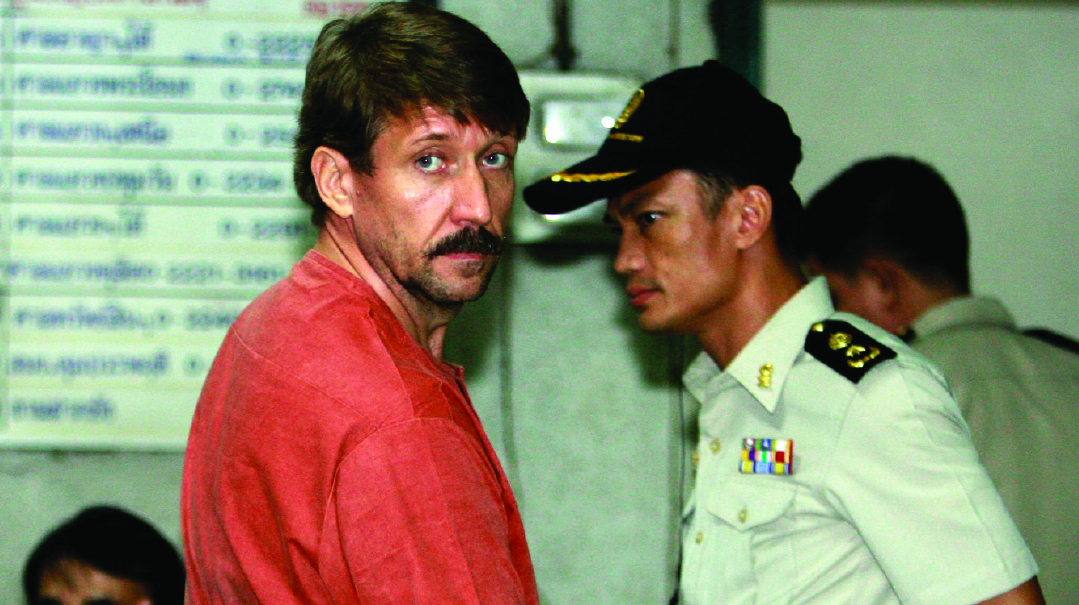
Service Provider
Who, exactly, is Viktor Bout, the suspense-novel villain with the steely eyes and trademark mustache?
Bout’s enterprise took off in the 1990s, as the Soviet Union was crumbling. Bout realized that the demise of the Motherland meant lots of business opportunities that would not come again easily. Management of its vast stockpiles of small arms and other weapons were in a state of anarchy as unpaid officers and soldiers sold off whatever they could. Bout soon set up a series of small transport companies based in Belgium and the United Arab Emirates through a complex series of corporate structures. At the heart of these companies were a number of Soviet transport aircraft that could negotiate poorly monitored third-world airspace and navigate the difficult landing zones throughout Africa and Asia.
This fleet eventually expanded to more than 60 — Bout was running the largest private fleet of Soviet-era planes in the world, and soon became known as someone who could supply any type of merchandise to any spot on the globe.
Speaking fluent Russian, English, Arabic, Portuguese, and another half a dozen languages fluently, Bout was able to operate in the grey and black markets, shipping anything that needed to be moved for anyone, using the Emirates city of Sharjah as a major operations hub. While much of his early cargo was legitimate, including flowers, chickens — and even UN peacekeepers — the weapons business was the most lucrative.
Initially, his markets were the wars in Sierra Leone, Liberia, Democratic Republic of Congo and Angola, although supplying the warlords of these conflicts would eventually lead to a series of UN, American, and European sanctions. He often equipped both sides of a conflict, most famously in Afghanistan, where he supplied both the Taliban and the Northern Alliance troops, often using the same flights to drop off weapons to the different combatants.
From 2002, despite having his assets frozen, his headquarters operations in Belgium and United Arab Emirates exposed and his planes tracked, Bout continued to operate with close to impunity until his arrest six years later.
He managed it through a chameleon-like series of front companies that, among contracts to deliver weapons was also one, for example, to deliver Fed-Ex parcels to Baghdad in 2004 on behalf of an American government that considered him a criminal. Bout delivered aid too — to both the south Asian tsunami victims in 2004 and Pakistani earthquake zone in 2005 — and even shuffled UN peacekeepers and weapons into Darfur.
Bout is a man of contrasts. He’s considered violent and dangerous, yet also extremely well-read and quite an intellectual. But above all was his remarkable talent for discerning business opportunities.
Bout purchased weapons from factories in Russia and from army warehouses in Bulgaria, and delivered them to enthusiastic customers all over the world. His gold mine was Africa — a continent driven by wars that gave him countless opportunities to profit from all sides of the fighting. Everyone was his friend: Mobutu and Kabila in Congo; Jonas Savimbi, the rebel military leader in Angola; the bloodthirsty Charles Taylor of Liberia. There was no dictator that Bout would refuse to do business with. He provided them with everything: Kalashnikovs, mortars, weapons, even helicopters if needed.
From the bloody fields of Africa to the murderous scenes of Bosnia, there wasn’t a blood-soaked corner in the world where Bout did not leave his fingerprints. If it would shoot or explode, Bout sold it.
Bout never considered himself a murderer. He didn’t really care what people did with the weapons he sold on the various black markets, as long as the payment was on time, preferably in cash. It happened that he concurrently provided weapons to two sides of a bloody civil war. Both sides knew this, and yet, he continued doing business with them. After all, business is business, and the Bout’s fleet of Ilyushin planes was capable of getting to especially remote locations that no one else wanted or was able to get close to.
One of those ironic episodes was when he signed a deal to fly supplies to the American army in Iraq, and at the same time, to supply arms to Taliban fighters in Afghanistan. “It’s all business,” he once explained, and added, “I wish both sides success.”
Bout’s business plan was neither unique nor particularly exceptional. There are many dealers of legal and illegal weapons, but few of them had the connections or the array of services that Bout brought to the table. He offered door-to-door service, bringing weapons to their destination point, got payment in cash or diamonds, and if necessary, even took care of laundering the money for his clients.
“Bout built the largest weapons smuggling network in the world and was the most powerful player in the trafficking of illegal arms,” said attorney Lee S. Wolosky, who was director for transnational threats at the National Security Council under President Bill Clinton in 2000. According to Wolosky, Bout’s web of companies was turning up in country after country — and popping up all too frequently on American radar.
CIA and NSA intelligence reports began to pile up on the desk of Whitney Schneidman, the deputy assistant secretary of state for African affairs. These reports documented the movements of Bout’s planes to and from Angola, indicating that there was a bloody war being waged nearby. While Schneidman claimed that Bout directly sabotaged US efforts to bring peace to Africa, the weapons dealer reaped hundreds of millions of dollars in these deals. He had a villa in Belgium, a luxury apartment in Moscow and a fleet of Mercedes-Benz and Land Rover automobiles.
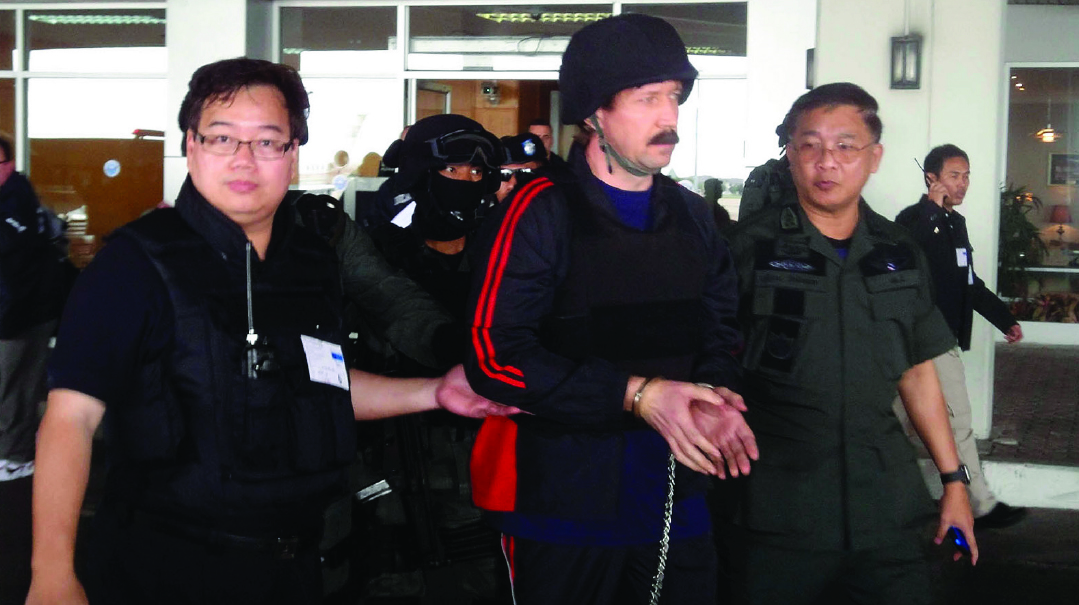
End Game
At one point, the Russians realized that Bout could be very useful to them. He was made of the stuff Putin likes, and the latter allegedly began to give him various and sundry assignments. While Bout’s name began to appear with more frequency in countless classified reports and memos regarding insurgencies around the world, the man himself was ensconced in an opulent dacha in the suburbs of Moscow, seemingly immune to any harm, protected behind the thick fur of the Russian bear.
This high level of Russian protection meant he could live freely despite international arrest warrants. One European intelligence official who had worked on a long-running investigation into Bout’s activities in Africa said at the time he didn’t believe Bout would ever be caught. No government, he said, really wanted to shut him down. Even though they hassled him with sanctions, everyone needed him at some point. As long as he stayed quiet and remained useful, he could have gone on indefinitely.
Even the US begrudgingly considered him useful: Apparently, even the CIA traded information with him, making him a practical, if unappealing, occasional asset.
So what happened that eventually led to his capture in a sting operation by a group of Drug Enforcement Administration agents, which was in fact kept secret from the larger US intelligence community for fear that Bout might be tipped off by some US “friends” who had protected him in the past?
According to Douglas Farah, an intelligence consultant and former journalist who cowrote the book Merchant of Death, published a year before Bout’s arrest, it was Bout’s willingness to work with Islamic organizations, such as Hezbollah, and other anti-American al-Qaeda allies that propelled his demise. There were even intelligence reports that Bout was in Beirut during the Second Lebanon War in 2006, arming Hezbollah’s arsenal against Israel with various modern Russian weapons and Cornet missiles — which can knock out a Merkava tank.
Once Bout began working with those countries directly opposed to US vital interests, he became a target of many in the intelligence community.
Bout had perfected the trade and transport that fueled terrorism networks and international drug cartels — until the day American Drug Enforcement Administration agents Lou Milione and Michael Brown masterminded a sting operation that would shut down Bout’s racket permanently.
Bout knew that there were international arrest warrants out for him in a dozen countries, and that the intelligence agencies in another dozen would be thrilled to get their hands on him. Milione and Brown needed a plan to lure him into their clutches.
In the end, he was the victim of an elaborate ruse involving a multimillion-dollar weapons deal between their informants posing as rebels in the Colombian underground FARC, with which he’d already done business in the past. After Bout would get excited by the deal, his contact people would explain that its success hinged on his presence — and he’d have no choice but to go.
But what reason would Bout — who had already amassed hundreds of millions of dollars— have to endanger everything for one additional deal, profitable as it might be? The DEA agents were banking on one factor: Bout’s greed. They hoped he simply would not be able to withstand the temptation.
At first, Michael Brown wanted to invite Bout to a business meeting in Romania. The country seemed ideal for his needs: As a former Soviet satellite nation, Bout would not feel threatened there. On the other hand, Romania had an extradition agreement with the United States.
Dozens of American agents were deployed around the hotel where the meeting was scheduled to take place. Brown himself closely followed what was going on from a control room in the United States. Yet the days passed, and turned into weeks, and Bout never showed up.
But the failure in Bucharest didn’t cow Brown into submission. A month after the failed meeting in Romania, American agents contacted Bout again. They didn’t want to appear over-eager, but they let him know they still wanted to meet. They told him that they were traveling to Thailand on business and suggested they meet there. Thailand has a strong extradition agreement with the US but is also a country riddled with corruption. That would hopefully give Bout a sense of protection of sorts. Bout called back four days later. He agreed to the meeting in Thailand. It would take place on March 6, 2008 at the posh Sofitel Hotel in Bangkok.
Bout was a slippery fish, who had been able to evade law enforcement in various countries. As an alumnus of the GRU (Soviet military intelligence) spy training school, he had sharp instincts and was alert as a tense cat. That’s why the Americans avoided putting a tail on him from the minute he left the Suvarnabhumi Airport in Bangkok. They were afraid he’d sense a trap, and would disappear.
Bout arrived at the hotel in the early afternoon, reserving the conference room for the evening hours. Michael Brown’s agents and Thai plainclothesmen entered the lobby one at a time, and naturally blended into the crowd.
Toward evening, Bout went downstairs to meet with the DEA agents posing as members of the Colombian underground. After Bout finalized a deal for guns, grenades, mortars, and surface-to-air missiles that he knew would be used against Americans stationed in Colombia, authorities pounced: Fifty Thai policemen with their guns drawn stormed into the room.
Bout looked around and his face turned grey.
“Game over,” he muttered.
Sold Out
The Russian government did whatever it could to prevent Bout from being extradited to the United States. They screamed, threatened, pleaded, promised the Thais anything they wanted. Rumors have it that the Russians and Americans engaged in a bidding war over the American extradition request, with Russia offering Thailand cut-rate oil and Americans offering military hardware. Both sides have denied such bargaining.
After the extradition request was honored, the Americans were still afraid of a last-ditch attempt to either rescue or assassinate Bout. He was taken from the central prison in Bangkok to the airport in an armed convoy while at the same time, another convoy was used as a decoy for potential Russian assassins.
In 2010, Bout was sentenced to 25 years in prison for selling weapons to terrorist organizations. Meanwhile, the Americans seem to be waiting for his patience to wear thin, and for him to decide to acquire his freedom in exchange for some juicy information that he is harboring about Putin’s shady deals.
But Bout is in no hurry to bite at the bait. He knows very well that people who anger Putin or threaten him do not live long. Ironically enough, he’s probably safer behind the walls of an American prison than in the traitorous streets of Moscow, where people have strange tendencies to jump from balconies without parachutes, or to sip a cup of tea with two teaspoons of sugar and one of Novichok.
(Originally featured in Mishpacha, Issue 871)
Oops! We could not locate your form.


